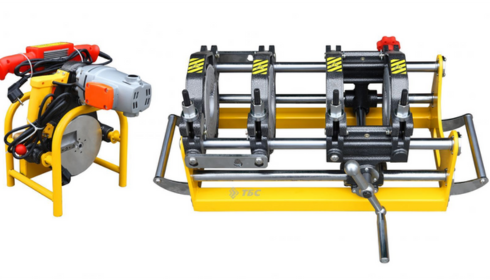Blockchain is a decentralized, distributed digital ledger that records transactions across multiple computers in such a way that the registered transactions cannot be altered retroactively. It’s known for its transparency, security, and immutability, which makes it useful for more than just cryptocurrencies.
Is blockchain only used for cryptocurrency? No, while blockchain was initially created for cryptocurrencies like Bitcoin, its potential goes far beyond that. Blockchain is being applied in various industries such as supply chain management, healthcare, finance, real estate, and more.
Blockchain in supply chain management is the application of blockchain to help improve transparency and traceability in supply chains. This way, all stakeholders-from suppliers to manufacturers, retailers, and consumers-have the same immutable, real-time data regarding the origin, quality, and movement of goods, reducing fraud and improving efficiency.
Can blockchain improve healthcare systems? Yes, blockchain has significant applications in healthcare. It can be used to securely store patient data, track medical records across different healthcare providers, and improve the transparency and accuracy of medical billing. Blockchain also helps streamline drug supply chains, ensuring authenticity and preventing counterfeiting.
How does blockchain benefit digital identity verification? Blockchain provides a secure and decentralized way to manage digital identities. It can enable individuals to have control over their own identity, preventing identity theft and unauthorized access. This is particularly useful in areas like online banking, e-commerce, and government services.
What is the role of blockchain in voting systems? Blockchain can be used to create secure, transparent, and tamper-proof voting systems. The use of blockchain to record votes makes it possible to verify election results immediately, prevent fraud, ensure transparency, and have an auditable trail.
Yes, blockchain can be used in protecting intellectual property, especially by making ownership transparent and unalterable. An artist, writer, or creator can record his works on a blockchain; it then proves ownership and can deter any third party from taking away his or her IP.
Blockchain makes cybersecurity more efficient by being decentralized, which is less prone to hacking. It allows for the secure management of data in such a way that no single entity can alter or tamper with records. It can also be used to secure communications and prevent data breaches through the encryption of sensitive data and transactions.
Applications of blockchain in real estate include simplifying and securing real estate transactions through the digitization of property titles, making it easier to transfer ownership. It can also make the process of escrow easier, reduce fraud, and lower transaction costs by eliminating lawyers or notaries as intermediaries.
Blockchain in supply chain finance is used to improve transparency and trust among buyers, suppliers, and financial institutions. It allows real-time tracking of invoices and payments, reducing delays, minimizing fraud, and improving liquidity by enabling faster financing options for suppliers.
What are blockchain applications in the food industry? Blockchain improves food safety, quality, and traceability in the food industry. Food traceability, which is an ability to track food from farm to table, is now possible because consumers can trace where their food originated, while companies can rapidly identify the source of contamination during an outbreak of foodborne illness.
The use of blockchain in renewable energy markets can provide support in enabling peer-to-peer energy trading; that is, individuals or businesses can buy and sell renewable energy directly without middlemen. This can also trace the generation and consumption of energy while providing transparent data on how clean energy is produced and consumed.
Yes, blockchain can be used in insurance. Blockchain can make the process of insurance much easier and faster by streamlining claims management and underwriting. It can automate claims through smart contracts, thereby reducing the time and cost associated with processing claims. It can also prevent fraud by providing transparent records of claims history and policy ownership.
Blockchain helps enhance transparency in fashion supply chains by tracing clothes throughout the supply chain from raw material to finished product. The consumers can then ascertain that their clothing is sourced ethically, sustainably, and without child labor or exploitation.
What is the role of blockchain in gaming? Blockchain technology is revolutionizing the gaming industry by enabling true ownership of in-game assets (e.g., skins, characters, and NFTs). Players can buy, sell, or trade their virtual items across different games or platforms, and blockchain ensures transparency, security, and scarcity of these assets.
Can blockchain be used for documentation authentication? Actually, blockchain will be able to authenticate and check the validity of documents. After recording digital documentations on the blockchain, authenticity along with integrity towards the document are easily verifiable without any intermediate third-party verifications.
In supply chain traceability, how is blockchain applied in pharmaceuticals? Blockchain can enhance the transparency and security of the pharmaceutical supply chain. It allows tracing of drugs from the manufacturer to the end user and helps prevent counterfeit drugs from entering the market, ensuring that medicines are safely handled and stored.
Charity donation by using blockchain : The usage of blockchain may improve transparency with respect to charitable donations; hence, ensuring the money given will be allotted and spent just the way donors expect it. Tracking real-time contributions and disbursal helps the transparent auditing record that money has actually been utilized.
What role does blockchain play in cross-border payments? It is able to reduce intermediaries such as banks and currency exchanges through blockchain technology. International transactions would take less time, will be secured more, and in general, less expensive, provided the basis is on the transparent ledger of both parties through blockchain.
How does blockchain help in luxury goods supply chain management? Blockchain can be used to verify authenticity. It helps create a transparent, immutable record of a product’s origin, ownership, and authenticity, which is especially important for high-end products such as watches, jewelry, and designer fashion.
What are the applications of blockchain in automated contract management? Blockchain can automate and enforce contract terms through smart contracts. These contracts are self-executing agreements where terms are written into code and executed automatically once predefined conditions are met. This can streamline processes, reduce human error, and ensure compliance in industries like real estate, finance, and legal services.
How is blockchain used in supply chain automation? Blockchains help automate supply chain operations by using smart contracts and secure data sharing. Transactions and shipments are automatically tracked, and contracts are executed after certain conditions are met to improve efficiency and reduce reliance on manual processes.
Yes, blockchain can be applied to health data interoperability. Blockchain can make healthcare data more interoperable by providing a secure, decentralized system where patients can control and share their health data with different healthcare providers. This ensures that medical records are accessible across various platforms, improving the quality of care.
How is blockchain used in digital advertising? Blockchain can be useful in combating fraud in digital advertising by giving an open and trackable record of all transactions. It can follow ad placements, interactions, and payments to ensure that the right impressions are seen by the advertiser and users aren’t being deceived or victimized by ad fraud.
Blockchain contributes to the Internet of Things (IoT) in the following ways: blockchain and IoT can work together to enhance the security, scalability, and automation of IoT systems. Blockchain can provide a secure ledger for data generated by IoT devices, ensuring that the information cannot be altered or tampered with. It can also enable machine-to-machine payments or transactions, improving the autonomy and efficiency of IoT networks.
Blockchain technology is not limited to cryptocurrency and has found applications across a wide range of industries, providing solutions for security, transparency, and efficiency. From supply chain management and healthcare to gaming and digital identity, blockchain’s ability to create immutable, decentralized records is transforming how data is handled, shared, and trusted across the globe. As the technology matures, it is likely that more industries will adopt blockchain to innovate and solve complex problems.




